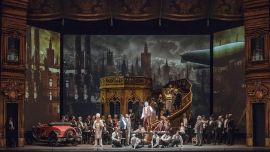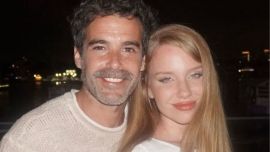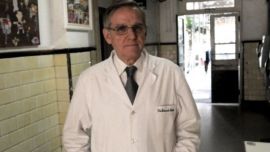Local football will take the first step towards a return to action next week, after clubs in the top two divisions received permission from the government to restart training on Monday (August 10).
Teams in Argentina have been banned from organising training sessions or matches for almost five months now, amid restrictions put in place to tackle the spread of Covid-19 in the country.
President Alberto Fernández's government announced Tuesday a host of safety and health protocols that teams must take in order for training to resume, while granting permission for teams in the top top tiers to return to the training pitches.
The rules therefore only apply to teams in the Primera División and Primera Nacional for now. Teams playing in the regional Copa Libertadores tournament – South America's equivalent of the Champions League – and can restart as of Monday, with the rest having to wait until September 2.
That means players from Boca Juniors, River Plate, Racing, Defensa y Justicia and Tigre will be the first to lace up their boots and take to the field.
During a meeting held at the Casa Rosada – led by Cabinet Chief Santiago Cafiero, Health Minister Ginés González García and Tourism and Sports Minister Matías Lammens – officials laid out the new protocols to Argentine Football Association (AFA) President Claudio 'Chiqui' Tapia and AFA Secretary Víctor Blanco.
Initially, players will only be able to train in groups of six at a time, with only physical fitness work permitted face-to-face. Social distancing measures must be enforced during sessions, with footballers expected to severely limit their time shared in changing rooms. A host of other sanitary measures, such as the frequent use of alcohol hand santising gel and regular temperature checks, must also be followed. AFA has committed to acquiring the necessary equipment for testing purposes, which it says it will distribute among the clubs.
Despite the new rules, there is no official scheduled return date for the return of league matches in the top two flights. There is also the question of the Copa Superliga, which started in March and then postponed before the first round of fixtures had even finished.
The main focus of pressure on the government, however, was in the restart of the Copa Libertadores, which was suspended in mid-March. The five Argentine teams competing in the tournament will have little more than a month to get up to speed, with River Plate due to play on September 17. Most of their regional rivals have already restarted training, with teams in Brazil and Paraguay playing matches.
Speculation in the local press suggests that the teams competing in the Libertadores will eventually adopt a set pre-season training schedule, which may even see some players live in isolation in a form of "sanitary bubble," to ensure players don't become infected with Covid-19.
President Alberto Fernández has questioned the participation of local clubs in the tournament, which will see teams travel to cities across the region for matches. Speaking last week, the Peronist leader said he was concerned by plans to restart the tournament, expressing fears for players who could become infected during trips, especially to Brazil.
“Football is a business, it moves money – I understand all that,” he added. “But you have to put yourself in the head and body of that player who has to go home and live with their parents, with all those fears hanging over them.”
"The only concern they have is that if they catch it, they could infect their parents and it is they who do not want to be at risk," said the Peronist leader.
"I wonder, to that player who feels that, do we have to demand that he goes to play a football game in the epicentre of the pandemic? Because right now, the epicentre is South America," said Fernández.
– TIMES/AFP





















Comments